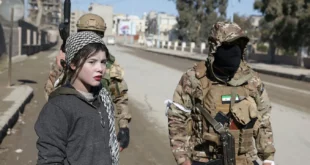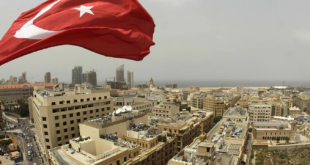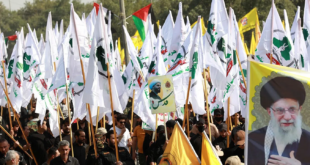 TEHRAN (FNA) – Iran and the United Arab Emirates (UAE)have begun top-level talks to boost economic relations, despite efforts by the United States to disrupt trade ties between the two Muslim neighboring states.The UAE is already Iran’s top trade partner with bilateral trade reaching US$14 billion, according to official sources.
TEHRAN (FNA) – Iran and the United Arab Emirates (UAE)have begun top-level talks to boost economic relations, despite efforts by the United States to disrupt trade ties between the two Muslim neighboring states.The UAE is already Iran’s top trade partner with bilateral trade reaching US$14 billion, according to official sources.
The US, concerned about Iran’s plans to develop nuclear know-how, “has tried to hurt the Iranian economy through unilateral sanctions,” an observer in Tehran told Inter Press Service (IPS).
“They consider UN sanctions too mild to achieve enough pressure on Iran to halt its nuclear program. To bring the Iranian economy to its knees [the US] has been encouraging and even putting pressure on all Iran’s trade partners, including the UAE, to stop dealing with Iran. This can and has hurt much more than the UN sanctions.”
At the forefront of efforts by the US to curb local trade with Iran are foreign banks with branches in the UAE. These continue to deal with firms that have Iranian partners, “but they are more cautious…”, Nasser Hashempour, executive deputy president of the Dubai-based Iranian Business Council, said this month, according to a report on the Middle East Online website.
Yet “stopping trade with Iran is in no way in the best interests of the UAE, which has the greater share of the lucrative trade relations, and hence their big dilemma is whether to relent to the US pressure and keep Americans happy or serve their own national interests and economy”, the observer said.
Bilateral trade between the UAE and the US fell 25% to $2.67 billion during the first quarter of last year compared with the same period of the previous year, according to the Business Intelligence Middle East website, citing US Department of Commerce data. UAE imports from the US fell 26% to $2.36 billion in the period compared with a year earlier, while UAE exports to the US fell by 7% to $307.6 million, cutting by 29% the UAE balance of trade deficit with the US, the website reported.
Trade between the US and the UAE declined 16% to $5.43 billion during the first half of 2007, ArabianBusiness.com reported, citing the US Bureau of Statistics.
Last May, Iran’s President Mahmoud Ahmadinejad became the first Iranian president since the Islamic Revolution of 1979 to visit the UAE. This was reciprocated last week by Sheikh Mohammad bin Rashid, prime minister of the UAE and ruler of Dubai, in a rare, top-level visit. He reiterated his country’s stance, expressed earlier at a joint press conference with Germany’s Chancellor Angela Merkel, that Iran had a right to peaceful nuclear technology.
Importantly, the sheikh also said Iran was no threat to regional states. “Allegations by aliens [the US] that Iran is a threat to the region are vague, as regional states share a lot of historic and contemporary common grounds,” the UAE premier said.
“The UAE prime minister’s visit is proof that US policies will not have any impact in the region,” Ahmadinejad said during his meeting with Sheikh Mohammad.
Ahmadinejad has offered to provide regional Arab countries that have their own nuclear ambitions with Iranian nuclear know-how. Referring to Iran’s nuclear technology, he told the visiting UAE prime minister that Iran was fully prepared to “put its valuable achievements” at the UAE’s disposal.
The visit, a little more than a month after one to the UAE by US President George Bush, sparked speculation about a nuclear message being relayed by the UAE prime minister to Tehran.
Iran’s ambassador in the UAE, Hamid Reza Assefi, rejected the speculation. Sheikh Mohammad “just informed us of his country’s stance regarding Iran’s nuclear issue and said Iran had a right to have access to peaceful nuclear technology”, the Iranian ambassador told FNA.
The Persian Gulf Cooperation Council (PGCC), of which the UAE is a member, acknowledges all nations’ right to peaceful nuclear energy, including Iran. Other members are Oman, Qatar, Saudi Arabia, Kuwait and Bahrain.
A report, the National Intelligence Estimate (NIE), by the US intelligence bodies in December 2007 seems to have put the minds of Iran’s Arab neighbors at greater ease as to the nature of its nuclear program. The report said that Iran’s nuclear program is pursuing a peaceful drive.
The NIE report has done little to alter Bush’s policy towards Iran. In January during an official visit to the UAE, he accused Iran once again of sponsoring terrorism. The US president said Iran’s actions threatened the security of nations everywhere and promised that the US was rallying friends to confront the Iranian danger before it was too late.
Bush’s customary rhetoric against Iran was not received in the UAE and in other countries in the region. “Unfortunately, the focus of this epoch-making visit to Abu Dhabi and Dubai has been on the US preoccupation with Iran, rather than America’s strong and healthy relations with the UAE and other (Persian) Gulf allies,” UAE’s pro-government Khaleej Times wrote.
“Just as the Persian Gulf countries have healthy relations with the West, including the US, they also have historical, cultural and economic ties with Iran,” the newspaper wrote. “The UAE happens to be Iran’s biggest trading partner. This is why the UAE and other (Persian) Gulf countries wouldn’t want any more confrontation and conflict between the US and Iran. The Middle East and Persian Gulf region, already suffering from two conflicts, cannot afford any more tensions. Peace and only peace is the way forward.”
The US has been trying to paint Iran as a scarecrow to the Arab nations, particularly to the Persian Gulf states, an observer in Tehran told IPS. “But Arab nations seem to be increasingly disillusioned with US policies. The PGCC countries say they will not allow any attacks on Iran from their soil. They seem to be more worried by a nuclear Israel that is continuing its aggressive policies without any hindrance,” the observer said.
“Before the UN began to impose sanctions on Iran to stop its nuclear program and the US stepped up its unilateral sanctions, the thriving economy of the UAE, and Dubai in particular, was seen as a serious threat to Iranian economy here,” he said.
“Capital flowed, and still flows, from Iran to Dubai in huge sums in search of profits. Iranian investors are now holding somewhere around $300 billion in capital in the UAE. The trade volume between the two countries was up by 25% last year. The Emirates are profiting in terms of money while Iran benefits by the trade between the two countries that enables its economy to meet the domestic demand for imports,” he added.
The greater part of Iranian imports from the UAE consists of re-exports from the country. The figures for the trade volume in the Iranian fiscal year that ended in March 2007 said that the UAE’s share of the $11.7 billion non-oil exports between the two countries was $9.2 billion.
Besides economic factors, the issue of the disputed islands was brought up during the UAE premier’s visit. Iran is prepared for talks with the UAE to “remove misunderstanding over the Persian Gulf Island of Abu Mousa”, Foreign Ministry Spokesman Mohammad Ali Hosseini told reporters following the UAE premier’s visit.
The territorial dispute between the two countries over the three islands dates to 1971 when the seven states comprising the UAE gained independence from Britain.
While insisting on its non-negotiable sovereignty over the disputed islands, Iran says it favors talks to resolve the issue. The UAE has in the past sought to settle the issue of the islands through the International Court of Justice in The Hague, but good ties with the Islamic Republic have encouraged Dubai to drop the case.
 Eurasia Press & News
Eurasia Press & News



